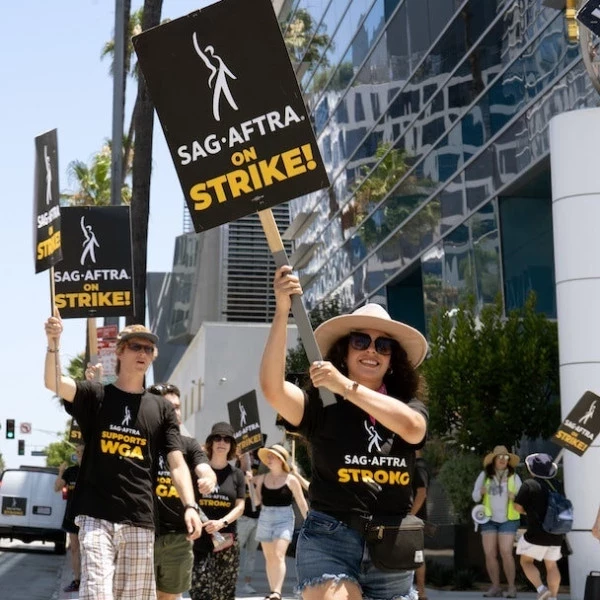HR News: More Layoffs at Microsoft, Strikes Put TV and Film on Hold, Hollywood's DEI Leaders Walking Away, and More
HREN News Roundup for the Week of 7/10
Add bookmark
This is a weekly roundup of the latest in HR News.
The HR News for this week is bitter sweet because recognition that the number of new payrolls decreased from 306,000 to 209,000 in May means fewer jobs. Combining this news, however, with slowing inflation means that the Federal Reserve might not raise interest rates again, which can enhance the economy. Still, the cooling job market begs the question: Will the leverage employees have gained since the Great Resignation come to an end?
Writers and actors in the TV and film industry may think so. This week the Screen Actors Guild (SAG) decided to join writers in the industry on strike, which has brought TV and film to a grinding halt. Microsoft is also conducting more layoffs. Last week, news broke that diversity, equity, and inclusion (DEI) leaders in Hollywood are getting laid off more frequently than those in other roles, and this week word is that some of them are leaving on their own. In addition, Wall Street is fighting New York's decision to prohibit non-compete agreements.
Join the global human resources online community

Join HR Exchange Network today and interact with a vibrant network of professionals, keeping up to date with the industry by accessing our wealth of articles, videos, live conferences and more.
Join NowMore Layoffs at Microsoft
The layoffs news is getting hard to track. Multiple companies have conducted layoffs multiple times. This week, Microsoft was in the headlines again because it filed with the government the fact that it is cutting at least 276 more jobs. Barron's reports that the layoffs will mostly impact those in customer service, support, and sales. This continues the trend of tech layoffs that began at the start of 2023, which is when Microsoft said it would cut 10,000 jobs.
Actors Go on Strike
SAG-AFTRA, the union representing Hollywood actors and performers, voted to go on strike after negiations with major studios failed. The actors want more money, better residual deals, and guardrails against the use of artificial intelligence (AI) in their craft. The studios say the economic uncertainty and market for streaming give them little room to pay more.
“The eyes of the world and particularly the eyes of labor are upon us,” said SAG-AFTRA President and Actress Fran Drescher said, according to The New York Times. “What happens to us is important. What’s happening to us is happening across all fields of labor. I am shocked by the way the people that we have been in business with are treating us! It is disgusting. Shame on them!”
The writers in Hollywood have been on strike for weeks. This is the first time in 60 years that both actors and writers are on strike at once.
DEI Leaders in Hollywood Leave
Karen Horne, Senior Vice President of North America DEI at Warner Bros. Discovery, Jeanell English, Executive Vice President of Impact and Inclusion at the Academy of Motion Pictures Arts and Sciences, Vernā Myers, Netflix’s first Head of Inclusion, and LaTondra Newton, Disney’s Chief Diversity Officer and Senior Vice President, and Terra Potts, Executive VP of Worldwide Marketing at Warner Bros., who previously led multicultural marketing and publicity, all announced their departures recently, according to CNBC. The news outlet reported that this exodus was a sign of bigger problems.
"The news is a one-two punch that shows Corporate America is failing to live up to its diversity commitments, and that it continues to fail Black women in leadership, experts say," according to the article.
This news fits in with last week's report on how companies are laying off DEI leaders more frequently than those in other positions. The commitment may be waning. Yet, HR Exchange Network recently held its DEIB event with an extremely engaged audience that seems to be bucking current trends.
WATCH: DEIB 2023
Non-Compete Agreements in Question
Non-compete agreements are popular in New York City. In fact, about 44% of New York firms have talent sign them, according to Bloomberg. As a result, when New York legislators approved one of the United States' toughest bans on these agreements, Wall Street moved to lobby against the bill, according to Bloomberg. The fight is on. Employment law watchers will be keeping tabs on this.
Photo by Salvatore De Lellis for Pexels

























